Welcome to the Wednesday, March 29, Brew.
Here’s what’s in store for you as you start your day:
- A look at absentee/mail-in ballot request deadlines in the eight states holding statewide elections this year
- North Dakota enacts a plain language requirement for ballot measure summaries
- An update on last week’s additions to the Federal Register
A look at absentee/mail-in ballot request deadlines in the eight states holding statewide elections this year
Kentucky, Louisiana, Mississippi, New Jersey, Pennsylvania, Virginia, Wisconsin, and Washington are holding statewide elections this year. We previously looked at early voting periods in those states.
Today, let’s look at when the absentee/mail-in ballot request deadlines are in those states for this year’s elections.
Absentee/mail-in voting is usually done through the mail. All states have some form of absentee/mail-in voting. Some states require voters to provide a valid excuse in order to vote absentee/by mail, while others do not.
- Seven states—California, Colorado, Hawaii, Nevada, Oregon, Utah, and Washington—provide for automatic mail-in voting, meaning that every voter receives a ballot in the mail by default. In Vermont, voters automatically receive a ballot for general elections only.
- Fifteen states require voters to provide a reason for requesting a mail-in ballot.
- Twenty-eight states (including Vermont) do not require voters to provide a reason for requesting a mail-in ballot.
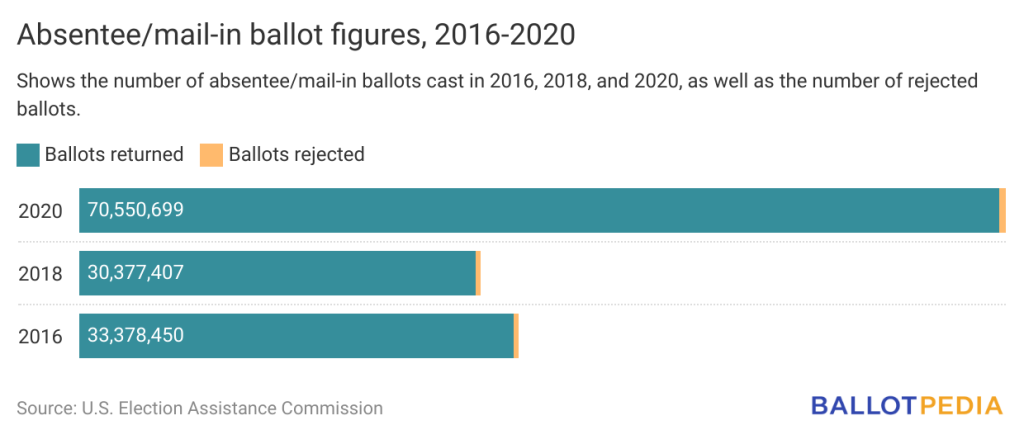
The table below shows the absentee/mail-in request deadlines for primary and general elections this year:
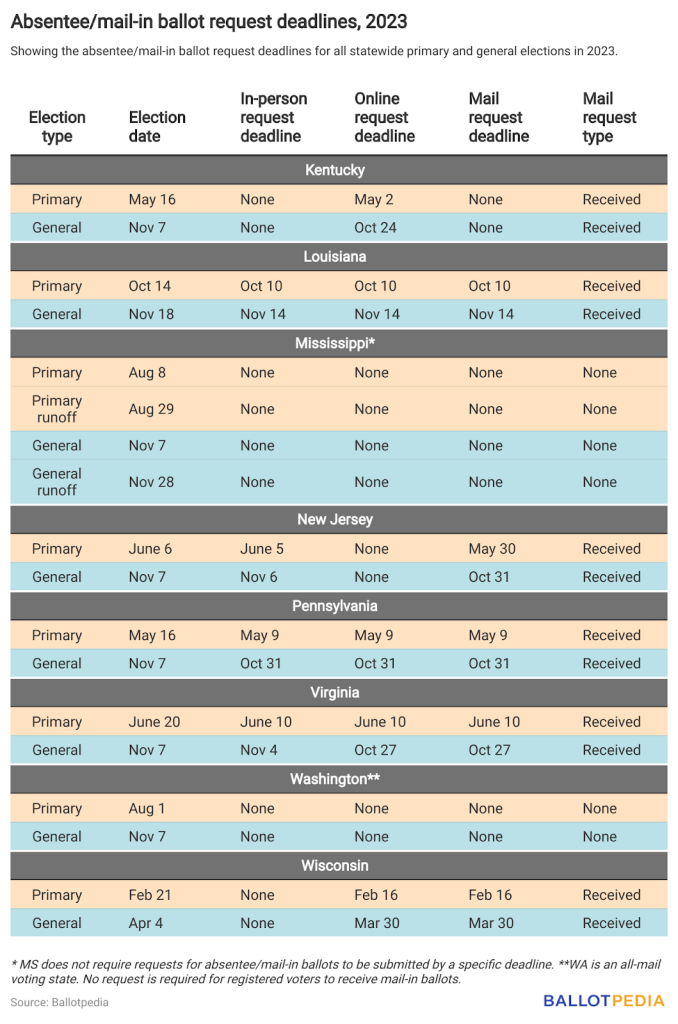
Rules for requesting absentee/mail-in ballots vary by state. For example:
- Kentucky requires voters to submit absentee/mail-in ballot requests through its online system. New Jersey does not accept requests made online or electronically.
- In New Jersey, absentee/mail-in ballot requests must be either submitted in person or by mail. Wisconsin does not allow in-person requests for absentee/mail-in ballots. Instead, voters must request ballots online or by mail.
Mississippi does not have a deadline for voters to submit absentee/mail-in ballot requests. It is the only state holding statewide elections this year without that deadline.
Click here to read about the arguments for and against absentee/mail-in ballots. Click below to learn more about absentee/mail-in ballot deadlines this year.
North Dakota enacts a plain language requirement for ballot measure summaries
We read a lot of ballot measures every year, and one thing that stands out is that they’re not always written in the clearest language.
Last week, North Dakota passed a law to make ballot measures easier to understand.
On March 23, Gov. Doug Burgum (R) signed Senate Bill 2163. It requires statewide ballot measures to be written in “plain, clear, understandable language using words with common, everyday meaning.” North Dakota’s secretary of state, in consultation with the attorney general, is responsible for writing the ballot language.
The votes in the Legislative Assembly did not fall along partisan lines.
The House passed the bill 84-9 (with one abstention). Seventy-three Republicans and 11 Democrats supported the bill, while nine Republicans and no Democrats opposed it. Republicans have an 82-12 majority in the House. The Senate passed the legislation 27-20. Twenty-five Republicans and two Democrats supported it, while two Democrats and 18 Republicans opposed it. Republicans have a 43-4 majority in the Senate.
State Rep. Jorin Johnson (R), who voted for the bill, said, “plain language is a way of writing that uses smaller words and shorter sentences. This helps people understand the main ideas more clearly without inflated vocabulary and convoluted sentence construction.”
State Sen. Judy Lee (R-13), who voted against the bill, said, “As one of our people who testified said, ’It’s a noble goal, but ‘readable’ is in the eye of the beholder.’ … There are no definitions for some of the words used in the bill like ‘common everyday meaning’… It’s just extremely hard to define.”
Since 2017, we’ve scored the ballot questions of the eight statewide measures that have appeared on the ballot in North Dakota using the Flesch-Kincaid Grade Level (FKGL). FKGL is a score equivalent to the estimated number of years of U.S. education required to understand a text. Scores ranged from 11 to 21, with an average score of 16—equivalent to a four-year college education in the U.S. From 2017 to 2022, the average state ballot measure readability score was 18.
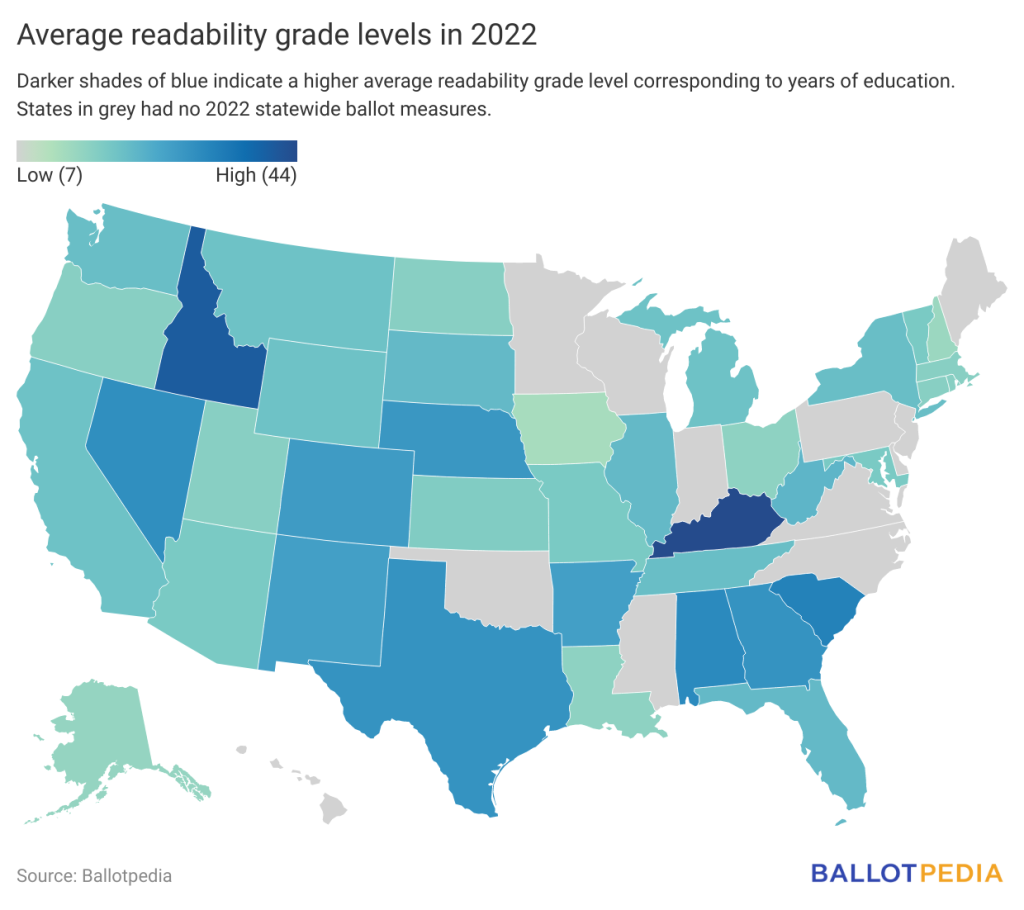
SB 2163 is the 10th ballot measure law change that we’ve tracked in 2023. Earlier in March, Arkansas increased the signature distribution requirement for initiatives and South Dakota moved the signature deadline after a court struck down the previous deadline. At least 280 bills regarding ballot measures or recall policies have been introduced during the 2023 legislative session as of March 24.
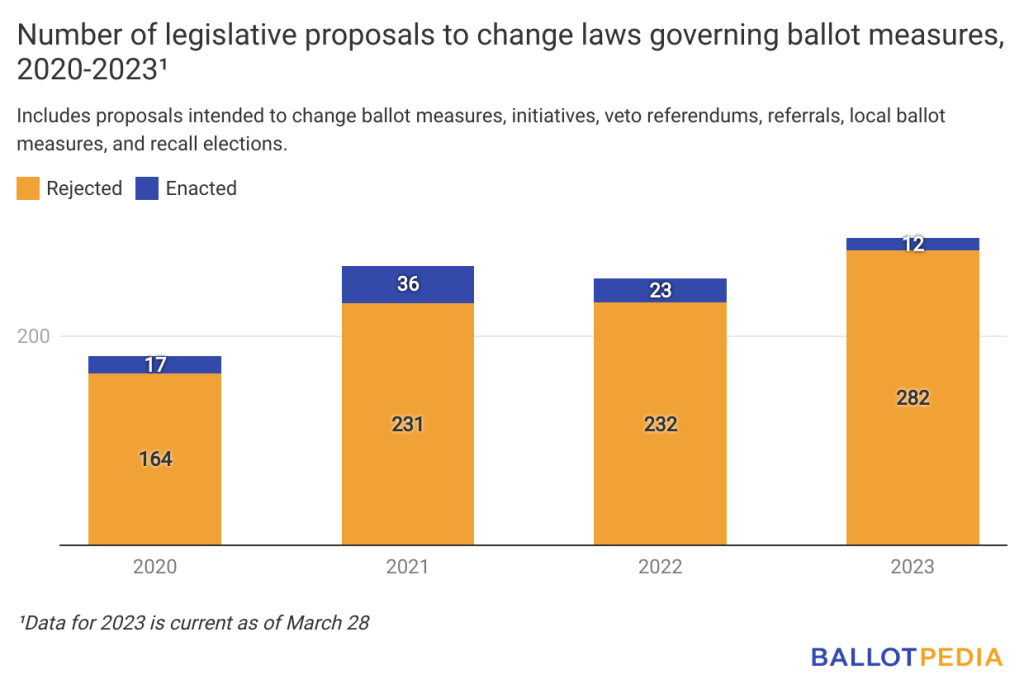
Click here to read more about ballot measure readability. Click below to read more about recent changes to law governing ballot measures.
An update on last week’s additions to the Federal Register
Here’s an update on the federal government’s regulatory activity.
Between March 20-24, the Federal Register grew by 1,456 pages for a year-to-date total of 17,986 pages.
The Federal Register is a daily journal of federal activity. The 1935 Federal Register Act created the journal to centralize and standardize the public release of federal government information. The journal includes presidential documents, proposed and final rules, and public notices, and is a common measure of an administration’s regulatory activity.
The Federal Register hit an all-time high of 97,069 pages in 2016.
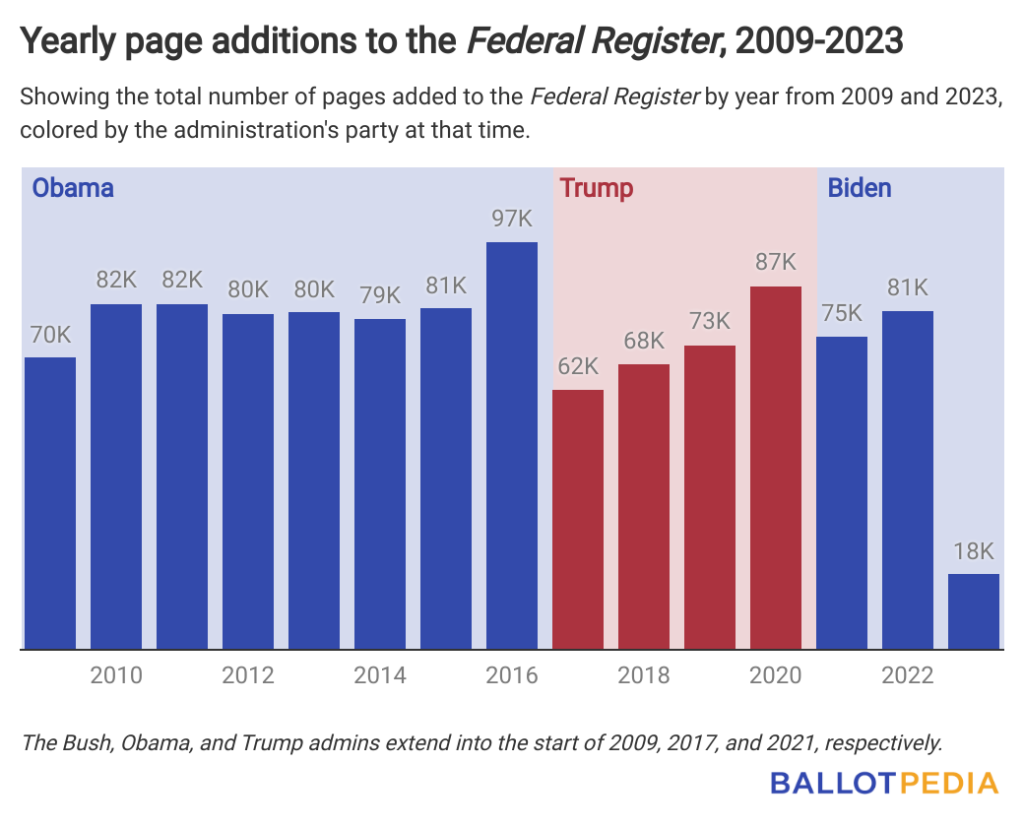
This week’s Federal Register includes 525 notices, two presidential documents, 45 proposed rules, and 68 final rules.
Three final rules were deemed significant under E.O. 12866. A rule is defined as significant if it has the potential to have large effects on the economy, environment, public health, or state or local governments.
We maintain page counts and other information about the Federal Register as part of its Administrative State Project. The project is a neutral, nonpartisan encyclopedic resource that defines and analyzes the administrative state, including its philosophical origins, legal and judicial precedents, and scholarly examinations of its consequences. The project also monitors and reports on measures of federal government activity.

